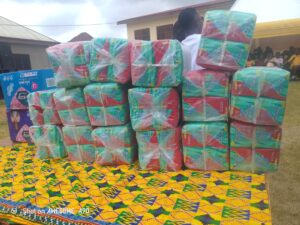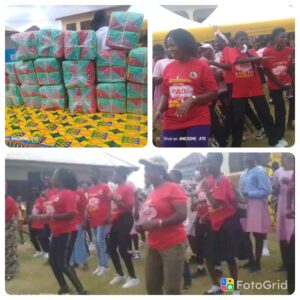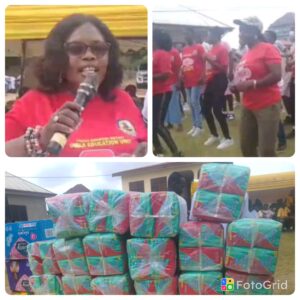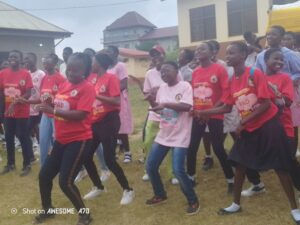Atwima Kwanwoma Marks Menstrual Hygiene Day with Focus on Empowerment and Sustainability:
Atwima Kwanwoma Marks Menstrual Hygiene Day with Focus on Empowerment and Sustainability:

Share this
Atwima Kwanwoma Marks Menstrual Hygiene Day with Focus on Empowerment and Sustainability:

Mrs. Doris Ofori, the Atwima Kwanwoma Municipal Education Director, has emphasized the significance of Menstrual Hygiene Day as a vital platform to raise awareness about the challenges faced by individuals during menstruation. The day also serves to promote sustainable menstrual hygiene management (MHM) practices through the collective efforts of all stakeholders.
Addressing participants at this year’s event held at Behenase M/A school, Mrs. Ofori highlighted the 2025 theme: “Empowering Individuals, Promoting Health, and Advocating Sustainable Menstrual Hygiene Management Practices- The Role of All Stakeholders.” She underscored the importance of breaking menstrual taboos, increasing education, and ensuring access to menstrual hygiene products such as pads, menstrual cups, and tampons.

According to her, empowering individuals begins with education and awareness, and is further strengthened by the provision of essential resources and support systems. She reiterated the importance of promoting health through proper hygiene practices and advocating sustainable and inclusive menstrual care policies.
The event was spearheaded by the Atwima Kwanwoma District Assembly’s Education Directorate in collaboration with the Queen Mother of Atwima Behenase, Nana Hima Bena Tipa II. It was marked by a vibrant and impactful ceremony aimed at raising awareness, providing critical support, and promoting menstrual health and dignity, particularly among young girls.
Mrs. Ofori emphasized the importance of proper menstrual care, advising girls to change their sanitary pads regularly, use clean water for personal hygiene, and practice safe disposal of menstrual products. She noted that menstrual hygiene is not only essential for physical well-being but also crucial in boosting self-confidence and ensuring uninterrupted school attendance for adolescent girls.
The event drew a diverse audience, including schoolgirls, parents, professionals, and traditional leaders. The inclusive gathering fostered open dialogue, helping to normalize menstruation and dismantle deep-rooted stigmas. By engaging the broader community, the initiative strengthened local support systems and created a more supportive and sustainable environment for menstrual health.
Source:Justice Baffour Awuah,CEO//www.dailywatchgh.com





![]()




